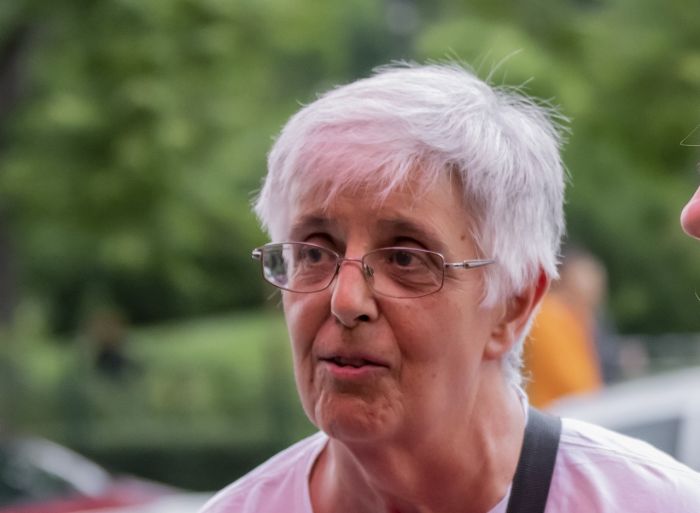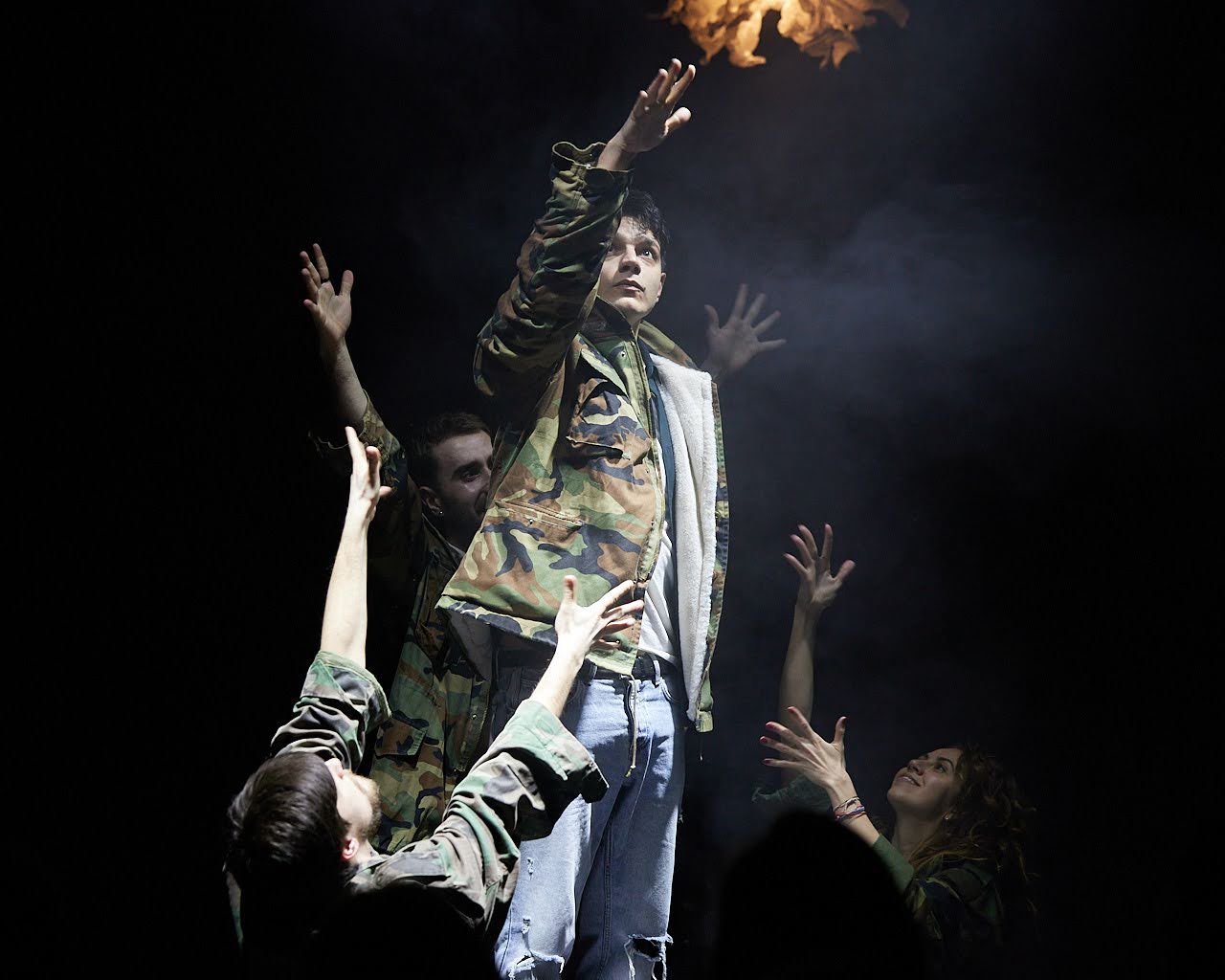 The author's project of director Vanja Jovanović and playwright Matej Sudarić "Velvet Revolution" produced by the Osijek Cultural Center was performed at the Novi Sad Youth Theatre (May 11) at the Third International Festival of Professional Theatres for Children and Youth - Novi Sad Theatre Festival (May 8-15 2024) and it arrived at the festival under the aura of good "vibrations".
The author's project of director Vanja Jovanović and playwright Matej Sudarić "Velvet Revolution" produced by the Osijek Cultural Center was performed at the Novi Sad Youth Theatre (May 11) at the Third International Festival of Professional Theatres for Children and Youth - Novi Sad Theatre Festival (May 8-15 2024) and it arrived at the festival under the aura of good "vibrations".
Although the state provides them with all legitimate rights from the age of eighteen, today’s youth are in their thirties, still not willing (or ready) to take responsibility (even those up to the age of 35 are considered young, although young people once sat on the throne at the age of 23, some even at the age of 17, while some wrote their most important literary works before their twenties). On the eve of the defense of his graduate thesis on the topic of the French Revolution, history student Duško Radić (Vedran Dakić) decides to spend the evening in peace, after which he will enter the "adult world", but his girlfriend Mila (Mateja Tustanovski), brother Neno (Nikola Radoš) and friend Jan (Matko Trnačić) with his girlfriend Ana Flegar (Sara Moser) conclude that they must be with him because he has been behaving strangely for the past month. The evening passes in mutual teasing because no one respects the other's worldview, so each of the characters is clearly profiled: Ana annoys everyone around her with her forced "environmental" care, especially her compliant boyfriend Jan, the brothers Duško and Neno accuse each other of various family situations , and Mila tries to achieve a happy relationship with Duško. No one is overly satisfied or assumes what the future will bring, but Duško (whom they describe as soft, gentle, velvety) leads the way in this apprehension. Moving from the seating set to the raised podium with the piano (Mario Tomašević), the actors move in a closed space in which realistic scenes alternate with illusion, where, thanks to the light (Anđela Kusić), it is always completely clear when the participants are talking to each other and when they are singing along to the piano. (music by Ljudevit Laušin, piano played by Tustanovski) represents Duško's idea that his friends are mocking him (the audience and actors are placed on the stage, which ensures a more intimate transmission of the message). The first part of the play consists of these more or less humorous "fights", while in the second part Duško turns to his own fears of the future (surrounded by defensive jute bags) and going out "into the world" (the room is obviously a kind of protection, defense, security) in which we recognize the "Peter Pan syndrome" - the fear of assuming responsibility in accordance with age. Although Duško uses the concept of revolution, he knows that he is weak, unprepared, immature, powerless - in short, "velvety" (oxymoron). The transition from the situation in which the friends are chatting to the situation in which we follow Duško's inner questioning is dramaturgically unclear since there is no reason for this reversal. If this "internal" presentation is supposed to show the search for the causes of fear (I can hardly believe that people on the threshold of their thirties are so immature) and possible salvation, I would expect a metaphorical approach and not the level of proclamation. And all of that presented in camouflage coats (M. Tomašević).
 Since I always write through a personal lens, I wonder to what extent the generation gap between me and the characters is an obstacle in recognizing their problems, and how much of it is due to the author's team trying too hard with this: we all had and still have various fears, but at least we try to find a cause for them; whereas, it seems to me that in this play, only the surface has been "scratched" without really investigating what it is all truly about?! What makes this play interesting (and very good) are the actors: especially Vedran Dakić, whose acting energy is a real locomotive. In his acting, everything is dosed and in its place: movement, grimace, sarcastic comment. Despite the role of a "background player" (compared to the energetic Ana in Sara Moser's interpretation), Matko Trnačić coped exceptionally well in the duality of Jan: he would be happy to express himself, but he would not want to insult ayone. The characters of Mila (Tustanovski) and Neno (Radoš) are on that line, but in a smaller contrast, so they all together form a well-balanced cast.
Since I always write through a personal lens, I wonder to what extent the generation gap between me and the characters is an obstacle in recognizing their problems, and how much of it is due to the author's team trying too hard with this: we all had and still have various fears, but at least we try to find a cause for them; whereas, it seems to me that in this play, only the surface has been "scratched" without really investigating what it is all truly about?! What makes this play interesting (and very good) are the actors: especially Vedran Dakić, whose acting energy is a real locomotive. In his acting, everything is dosed and in its place: movement, grimace, sarcastic comment. Despite the role of a "background player" (compared to the energetic Ana in Sara Moser's interpretation), Matko Trnačić coped exceptionally well in the duality of Jan: he would be happy to express himself, but he would not want to insult ayone. The characters of Mila (Tustanovski) and Neno (Radoš) are on that line, but in a smaller contrast, so they all together form a well-balanced cast.
Olga Vujović
The author is a theater critic from Croatia. She writes for www.kritikaz.com and on the portals wish.hr, fama.com.hr, virovitica.net. She is a member of the Croatian Society of Theatre Critics and Theatrologists.



